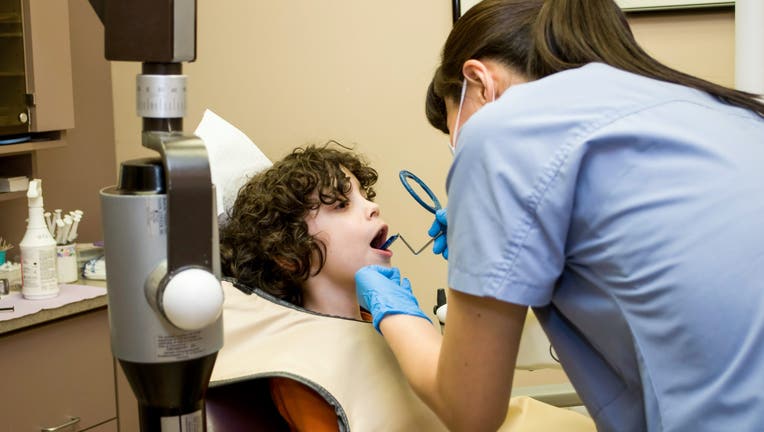Michigan dentists dropping lead aprons during patient x-rays

(Photo by Roberto Machado Noa/LightRocket via Getty Images)
(FOX 2) - Your next x-rays at the dentist are going to feel a little lighter.
Dental practices across Michigan are no longer using lead aprons when taking x-rays of patient's mouths, following guidance from the American Dental Association.
Big picture view:
The use of lead aprons and thyroid collars traditionally worn during x-rays at the dentist's office is now a thing of the past following new recommendations from the ADA.
Guidelines released in 2024 cited new evidence that lead aprons are no longer necessary for shielding patients from radiation.
That's because newer digital x-rays use less radiation than traditional film x-rays. There are also updates to the machine taking pictures of a patient's mouth, using a rectangular-shaped tube rather than a circular-shaped tube.
With the goal of using the minimum amount of radiation, removing the lead apron also means removing a potential obstruction that can force dentists and hygienists to take x-rays multiple times.
Research has also found that lead shielding can trap radiation.
What they're saying:
Over the years, x-ray exams have used less radiation to take scans of the human body. While some scans can require lead shielding - like CT photographs of the abdomen and pelvic region - Dr. Cheri Newman says intraoral scans use "the very lowest" amount of radiation.
"You'll get more (radiation) going up in an airplane or going in sunshine," she said.
And while some dentists may not use the digital x-ray or still use an older style, Newman said the amount of radiation is small enough that lead aprons get in the way more often than block unnecessary radiation.
"We always want to take the minimum amount of x-rays we need to diagnose something," she said. "If you use a thyroid collar, it can get in the way and another will be needed, which means you receive twice as much."
Local perspective:
Dental practices will likely hold onto their lead vests.
There may be specific circumstances where using one will be beneficial, but Newman said updating a long-term policy means there could be some patients who are wary about not using the apron.
Dentists may still offer the aprons to people who would be more comfortable wearing them.
"Patients are used to it, and it can be difficult to reeducate the public on the fact it's no longer needed," she said. "I always explain that ‘digital sensors are so much better than the old film and even the old film has reduced the dose so much that it’s not necessary.'"
The Source: Information from the American Dental Association as well as interviews with the Michigan Dental Association were used for this story.

